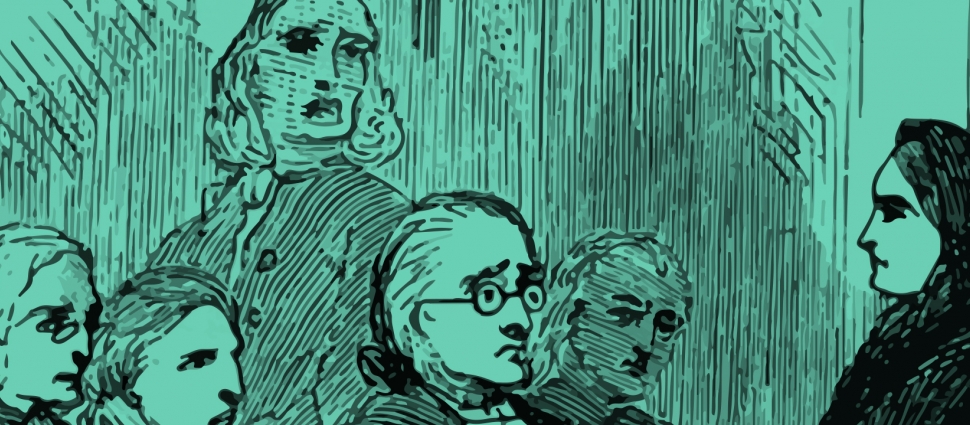Antinomianism

Sep 11, 2018
In several articles, I have referred to the so-called “antinomians” by which I mean the 17th century English theologians who were labelled antinomians. In this article, I will provide a brief explanation of English antinomianism.
The term “antinomian” was a term of abuse and rejected by most if not all of the accused. Nevertheless, the accused were set apart by a number of shared beliefs and concerns, not least of which was the belief in the abrogation in some sense of the Mosaic Law, including the Ten Commandments. The term “antinomian” therefore was not completely unwarranted or inappropriate despite the fact they did not advocate licentious living. It must also be noted that there was a good deal of diversity within the antinomian movement. David Como has identified two basic types of antinomianism in early Stuart England: “perfectionist” and “imputative.” The latter type was moderate and by far the most popular.
John Eaton was the recognized leader of the imputative or moderate type of antinomianism. Indeed, he is often regarded as the father of English Antinomianism. This is true, not in terms of being the first to introduce antinomian ideas in England, but in terms of prominence and influence. Reacting against mainstream Puritan doctrine and practice, Eaton sought to convince the church of his own views, which he believed were in line with the Reformers, particularly Martin Luther. He thought that the Church of England had been tainted by legalists who had corrupted the doctrine of justification with “a swirl of covenants, conditions, works, threats, and penalties, all reinforced by mortifications, fasts, and other ‘legall devotions.’” Hence, the church needed to be called back to her reformation roots. This he labored to do until his death in 1642.
The mantle was then passed on to Tobias Crisp, who has been sometimes regarded as the high priest of English Antinomianism. Having probably imbibed Eatonist ideas through John Emersone in the late 1620s, Crisp moved to London in 1642 where he quickly became an influential leader, along with John Simpson and Giles Randall, of the antinomian movement. His time on the center stage was short lived, however, because he died from smallpox the following year. Nevertheless, his friend and fellow antinomian Robert Lancaster saw to it that his teaching lived on by having a collection of his sermons printed shortly after his death entitled, Christ Alone Exalted. Two more volumes of his sermons with the same title came off the presses in 1644 and 1646. All three volumes were combined into one volume and republished, along with ten previously unpublished sermons, in 1690 by Samuel Crisp, the author’s son. The 1690 edition was reprinted in 1755 in two volumes with explanatory notes and a memoir of Crisp by John Gill. The Gill edition remains in print today.
A number of people have summarized the main tenets of seventeenth century English Antinomianism. Richard Baxter judged that there were forty characteristics of Antinomianism, but two key ones that undergirded the whole system: justification from eternity, and denial of the conditionality of the covenant of grace. John Flavel addressed ten errors in his book against antinomianism, whereas Robert Traill noted seven doctrines that properly deserve the epithet “antinomian.” More recently, Barry Howson, in summarizing the theology of antinomianism lists seven tenets. Similarly, David Como, while acknowledging significant intellectual differences among proponents, is of the opinion that there are seven antinomian tendencies or characteristics. Although these lists are not identical, they are similar and reflect an emphasis on the freeness and fullness of justification and the sovereignty of God in redemption. As a result, man’s role in salvation, in both justification and sanctification, is downplayed significantly, if not removed entirely. All forms of human endeavor, including faith, are disconnected from playing any active part in salvation. This is the reason, for example, there are no conditions in the covenant of grace. Faith is not the instrumental condition of justification and good works are not the way to salvation or the antecedent condition for glorification. Thus, antinomianism, as a system, is constructed to prohibit even a whiff of legalism or moralism.
*This post is an excerpt from my ThM thesis, “Anti-Antinomianism: The Polemical Theology of Daniel Williams.”





